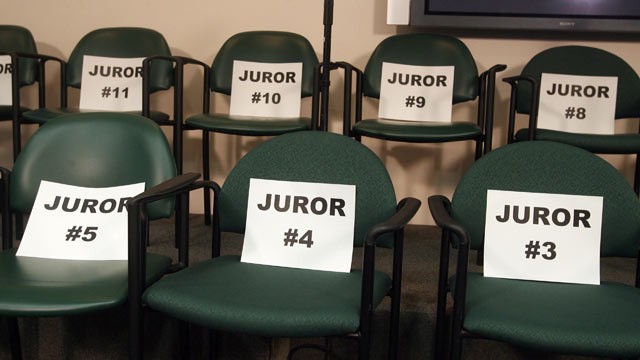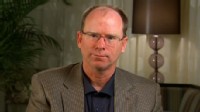Capitol Hill phone lines were jammed and websites of key lawmakers -- including House Speaker John Boehner -- crashed as citizens from coast to coast tried to weigh in on the debate.
Publicly, however, neither Democratic nor Republican leaders indicated a willingness to consider the latest proposal put forward by their counterparts.
Senate Majority Leader Harry Reid, D-Nevada, called a plan put forward by Boehner, R-Ohio, a market-rattling "short-term solution" that "really isn't a solution at all." Boehner called Reid's blueprint a "blank check" for more uncontrolled spending that would undermine the economy.
Senate Minority Leader Mitch McConnell, R-Kentucky, called Reid's plan "another (Democratic) attempt to pull the wool over the eyes of the American people."
The latest rhetorical volleys came little more than 12 hours after President Barack Obama's nationally televised plea for compromise.
"This is "no way to run the greatest country of Earth," Obama said Monday night. "The American people may have voted for divided government, but they didn't vote for a dysfunctional government,"
The president also jumped into the partisan fray, however, ripping House Republicans for stubbornly pursuing a "cuts-only approach" that "doesn't ask the wealthiest Americans or biggest corporations to contribute anything at all." Obama renewed his call for a "balanced approach" that would include no extension of Bush-era tax cuts for families making over $250,000 a year.
Boehner, in turn, blasted Obama in a nationally televised response, accusing the president of engaging in a debilitating "spending binge" and pushing "tax increases(that) will destroy jobs."
As political leaders continued to argue, the clock continued to tick down. If Congress fails to raise the $14.3 trillion debt limit by August 2, Americans could face rising interest rates and a declining dollar, among other problems. As the cost of borrowing rises, individual mortgages, car loans and student loans could become significantly more expensive.
Some financial analysts have warned of a potential stock market crash and a downgrade of America's triple-A credit rating.
Officials also warn that, without an increase in the debt limit, the federal government would not be able to pay all its bills next month. Obama recently indicated he could not guarantee Social Security checks would be mailed out on time.
Despite the poisonous partisan atmosphere, the Reid and Boehner plans remain the focal points of talks between the two parties.
Both plans provide a path to raise the debt ceiling through the end of 2012, but they differ in scope and in key components involving requirements for future congressional action.
Obama has endorsed Reid's plan, but acknowledged it has little chance of getting passed in the House, just as the competing Republican plan unveiled by Boehner is unlikely to get passed by the Senate.
Reid's blueprint calls for roughly $2.7 trillion in spending cuts over the next decade while raising the debt limit by $2.4 trillion -- an amount sufficient to fund the government through 2012, which means past next year's election.
The plan excludes major provisions of a comprehensive deficit-reduction strategy, such as increased revenue and reforms to politically popular entitlement programs -- such as Medicare, Medicaid and Social Security -- that face skyrocketing growth in costs.
Specifically, Reid's plan includes $1.2 trillion in savings from various domestic and defense programs, along with $1 trillion in savings from winding down the wars in Iraq and Afghanistan. It generates $400 billion in interest savings on the debt, and another $40 billion by rooting out waste, fraud and abuse.
It also would establish a congressional committee made up of 12 House and Senate members to consider additional options for debt reduction. The committee's proposals would be guaranteed a Senate vote with no amendments by the end of the year.
Reid stressed Monday that his plan doesn't include tax hikes and would cut spending more than it increases the debt ceiling -- two key GOP demands.
"I hope my colleagues on the other side will still know a good deal when they see it. I hope they'll remember how to say yes," Reid said. "Democrats have done more than just meet Republicans in the middle. We've met them all the way."
Boehner, however, argued at a Monday afternoon news conference that Reid's plan is "full of gimmicks."
The package "doesn't deal with the biggest drivers of our deficits and debt, and that's entitlement programs," Boehner said.
Boehner's plan would require two separate votes by Congress. The first would approve approximately $1.2 trillion in spending cuts over the next decade while raising the debt ceiling through the end of 2011. Any failure on the part of Congress to enact the mandated spending reductions would trigger automatic across-the-board budget cuts.
The second vote would raise the debt limit through 2012, but only if Congress approves a series of major tax reforms and entitlement changes outlined by a bipartisan committee composed of Senate and House members.
The proposed structural changes -- a focal point of intense ideological conflict in Washington -- would have to generate between $1.6 trillion and $1.8 trillion in savings, according to a House Republican aide familiar with the package.
Boehner's plan, while allowing a total debt-ceiling increase of roughly $2.6 trillion, also would require both a House and Senate vote on a balanced budget amendment to the Constitution between October 1 and the end of the year.
This plan is "less than perfect," Boehner said, but "reflects bipartisan negotiations" conducted with Senate Democrats over the weekend.
Democrats as a whole are vehemently opposed to the idea of holding more than one vote to raise the debt limit through the 2012 election, arguing that such a requirement is politically unrealistic and could prove to be economically destabilizing.
Republicans want to lock in long-term tax and spending changes, and argue that Obama is trying to avoid politically tough decisions in a presidential election year.
Top senators from each party said Monday night that efforts are under way to try to reach a deal that would avoid Congress having to vote on either the Reid or the Boehner proposals.
As the debt ceiling debate drags on, a new CNN/ORC International Poll reveals a growing public exasperation and demand for compromise. Sixty-four percent of respondents to a July 18-20 survey preferred a deal with a mix of spending cuts and tax increases. Only 34% preferred a debt reduction plan based solely on spending reductions.
As in Congress, the public is sharply divided along partisan lines. Democrats and independents, according to the CNN/ORC Poll, are open to a number of different approaches because they think a failure to raise the debt ceiling would cause a crisis of major problems for the country. Republicans, however, draw the line at tax increases, and a narrow majority of them oppose raising the debt ceiling under any circumstances.
Fifty-two percent of Americans think Obama has acted responsibly in the debt ceiling talks so far, but nearly two-thirds say the Republicans in Congress have not acted responsibly. Fifty-one percent would blame the GOP if the debt ceiling is not raised; only three in 10 would blame Obama.






